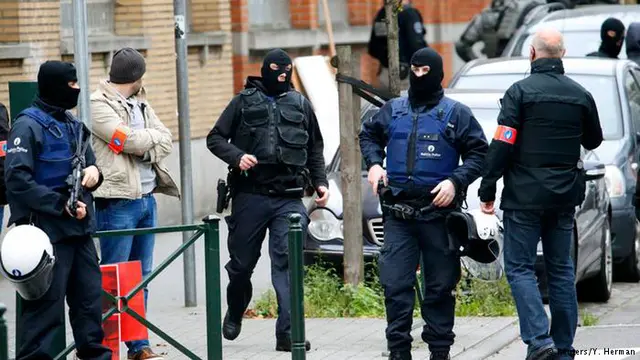Less than five months after bloody terrorist attacks rocked Paris last November, Brussels, the capital of the European Union, also suffered from multiple deadly bomb attacks on Tuesday morning, killing at least 34 people and injuring 170 more.
The extremist group Islamic State (IS) has claimed responsibility for the terror attack, and threatened other countries participating in the anti-IS coalition.
As the terrorist threats escalate in Europe, experts believe that the rampancy of terrorism in the once peaceful region not only stems from its unstable neighboring environment, but also is due to its internal social problems.
As the whole world grieves the loss of innocent lives and feels indignant at the cruelty of the terrorists, no one should jump to conclusions and point fingers. Instead, a combination of measures should be taken to deal with the complex causes of terrorism. Europe needs to look for solutions outside its borders and from within.
Grave terrorism threats
"Europe is in a state of war. The terror threat remains on the highest level," French Prime minister Manuel Valls made the remarks after an emergency meeting in the wake of Brussels ' terrorist attacks.
His words brought back to mind the situation after the series of terror attacks in Paris. "We are now in a war against jihadist terrorism which threatens the whole world," French President Francois Hollande said at the time.
With two important European cities rocked by serious terror attacks in a short period of time, Europe is undoubtedly facing grave threats of terrorism.
Wu Shaozhong, a professor at People's Public Security University of China, said that following the Paris attacks Europe has intensified its fight against terrorism. However, the Brussels incident shows that terrorism is alive and well on the continent.
Rob Wainwright, director of the European Union's police agency Europol, warned that up to 5,000 IS terrorists may have entered Europe after receiving training in Syria and other war zones, and Europe is now facing its biggest terror threat in more than a decade.
Complex causes of terrorism
The causes of the terrorism in Europe are very complicated, experts point out.
First of all, upheavals in the Middle East have lead to the conditions necessary for terrorism to flourish, with its disastrous effect then spilling over into neighboring European countries. For example, the reason why the IS prevailed in Syria, Iraq, Libya and Yemen was that these unstable societies provided conditions for IS to grow.
Secondly, an increasing amount of terrorism isn't imported from abroad but is homegrown right in Europe. For example, Wu pointed out that the organizing and implementation of the Paris attacks were carried out in Europe.
Wu said that in a bid to eradicate the threats of home-grown terrorism, the ideology of terror must be kept from spreading into Europe and impacting its youth.
"The terror threats in Europe largely involve the IS bringing terrorism onto the continent as European extremists return home after joining the IS in the Middle East," said Chu Yi, associate professor of international affairs with the Beijing-based University of International Relations.
Furthermore, behind an increasingly home-grown terrorism, the deteriorating economic conditions and high unemployment rates in European countries have provided soil for the expansion of extremism.
Multi-aspect measures should be taken
Experts believe a multi-faceted approach is needed to combat terrorism in Europe.
European countries need to step up their anti-terrorist intelligence collection, so as to break down terror plots before they are carried out. Furthermore, immigration control should be tightened to prevent some terrorists disguised as refugees from slipping. Moreover, security checks at major public facilities such as government departments, subways and airports should also be enhanced.
Additionally, in the light of the turbulence in the Middle East, Europe should shelve its disputes in the region and push for a more concerted, global effort to fight the IS.
Moreover, Europe must examine its internal problems, such as a weak economy and misunderstandings in culture and religion, and try to eliminate the hotbed for the spread of terror ideology. Enditem
 简体中文
简体中文

